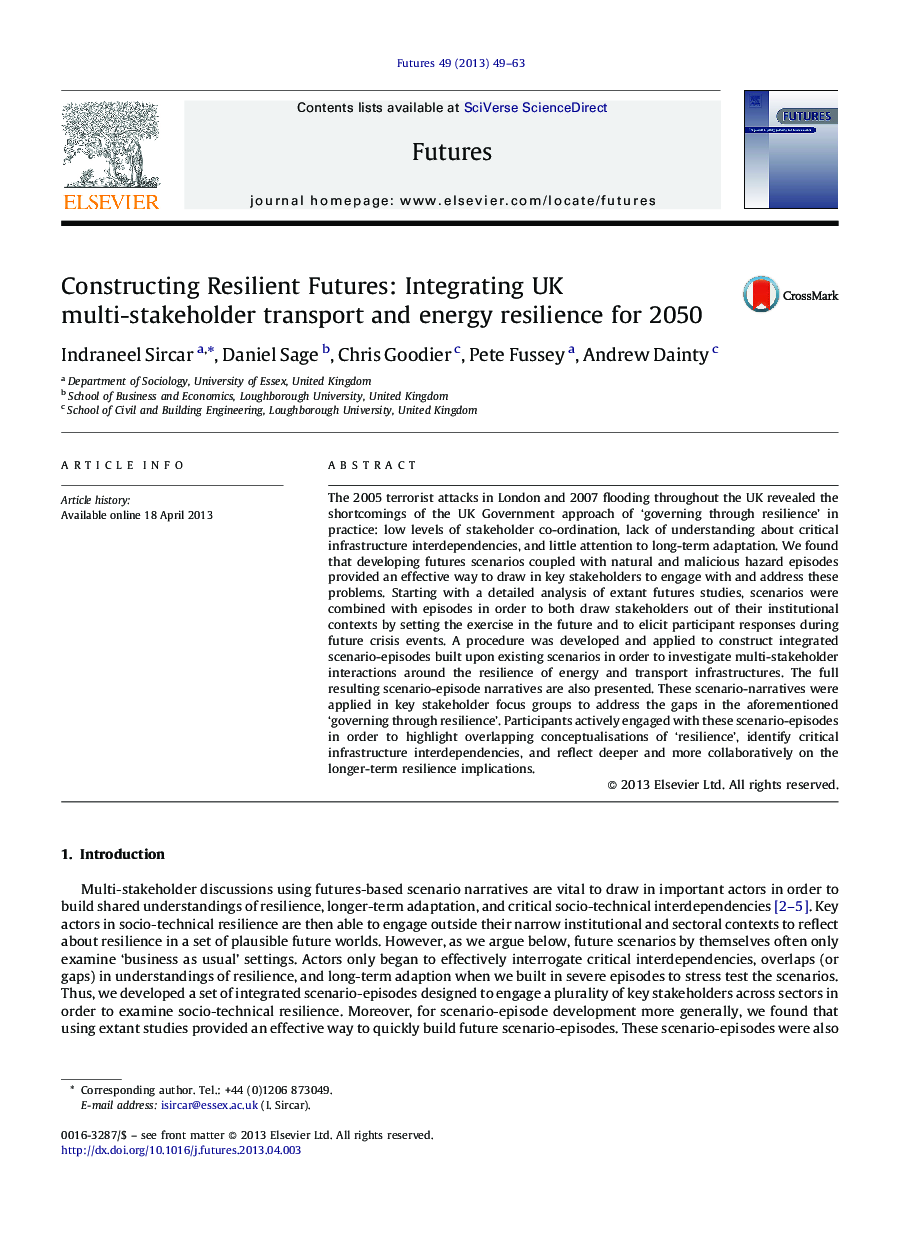| Article ID | Journal | Published Year | Pages | File Type |
|---|---|---|---|---|
| 7424650 | Futures | 2013 | 15 Pages |
Abstract
The 2005 terrorist attacks in London and 2007 flooding throughout the UK revealed the shortcomings of the UK Government approach of 'governing through resilience' in practice: low levels of stakeholder co-ordination, lack of understanding about critical infrastructure interdependencies, and little attention to long-term adaptation. We found that developing futures scenarios coupled with natural and malicious hazard episodes provided an effective way to draw in key stakeholders to engage with and address these problems. Starting with a detailed analysis of extant futures studies, scenarios were combined with episodes in order to both draw stakeholders out of their institutional contexts by setting the exercise in the future and to elicit participant responses during future crisis events. A procedure was developed and applied to construct integrated scenario-episodes built upon existing scenarios in order to investigate multi-stakeholder interactions around the resilience of energy and transport infrastructures. The full resulting scenario-episode narratives are also presented. These scenario-narratives were applied in key stakeholder focus groups to address the gaps in the aforementioned 'governing through resilience'. Participants actively engaged with these scenario-episodes in order to highlight overlapping conceptualisations of 'resilience', identify critical infrastructure interdependencies, and reflect deeper and more collaboratively on the longer-term resilience implications.
Related Topics
Social Sciences and Humanities
Business, Management and Accounting
Business and International Management
Authors
Indraneel Sircar, Daniel Sage, Chris Goodier, Pete Fussey, Andrew Dainty,
